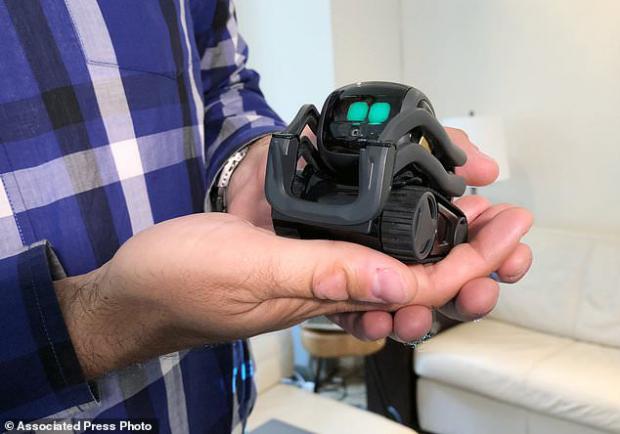
Breaking News
 Iran – The 'Ragtag Network of Activists' Run by the State Department
Iran – The 'Ragtag Network of Activists' Run by the State Department
 Virginia Democrats Take Office, Immediately Set Sights on Second Amendment
Virginia Democrats Take Office, Immediately Set Sights on Second Amendment
 The day of the tactical laser weapon arrives
The day of the tactical laser weapon arrives
 Ilhan Omar is under investigation for her skyrocketing wealth... as she berates reporters...
Ilhan Omar is under investigation for her skyrocketing wealth... as she berates reporters...
Top Tech News
 Solar Just Took a Huge Leap Forward!- CallSun 215 Anti Shade Panel
Solar Just Took a Huge Leap Forward!- CallSun 215 Anti Shade Panel
 XAI Grok 4.20 and OpenAI GPT 5.2 Are Solving Significant Previously Unsolved Math Proofs
XAI Grok 4.20 and OpenAI GPT 5.2 Are Solving Significant Previously Unsolved Math Proofs
 Watch: World's fastest drone hits 408 mph to reclaim speed record
Watch: World's fastest drone hits 408 mph to reclaim speed record
 Ukrainian robot soldier holds off Russian forces by itself in six-week battle
Ukrainian robot soldier holds off Russian forces by itself in six-week battle
 NASA announces strongest evidence yet for ancient life on Mars
NASA announces strongest evidence yet for ancient life on Mars
 Caltech has successfully demonstrated wireless energy transfer...
Caltech has successfully demonstrated wireless energy transfer...
 The TZLA Plasma Files: The Secret Health Sovereignty Tech That Uncle Trump And The CIA Tried To Bury
The TZLA Plasma Files: The Secret Health Sovereignty Tech That Uncle Trump And The CIA Tried To Bury
 Nano Nuclear Enters The Asian Market
Nano Nuclear Enters The Asian Market
 Superheat Unveils the H1: A Revolutionary Bitcoin-Mining Water Heater at CES 2026
Superheat Unveils the H1: A Revolutionary Bitcoin-Mining Water Heater at CES 2026
 World's most powerful hypergravity machine is 1,900X stronger than Earth
World's most powerful hypergravity machine is 1,900X stronger than Earth
Personalised AI-powered robots are getting more sociable...

It's taken decades of research to build robots even a fraction as sophisticated as those featured in popular science fiction.
They don't much resemble their fictional predecessors; they mostly don't walk, only sometimes roll and often lack limbs.
And they're nowhere close to matching the language, social skills and physical dexterity of people.
Worse, they're so far losing out to immobile smart speakers made by Amazon, Apple and Google, which cost a fraction of what early social robots do, and which are powered by artificial-intelligence systems that leave many robots' limited abilities in the dust.
That hasn't stopped ambitious robot-makers from launching life-like robots into the market - albeit with mixed results so far.
Two pioneers in a new vanguard of cute, sociable robots - Jibo, a curvy talking speaker, and Kuri, a cartoonish wheeled 'nanny' - have been early casualties. The makers of Vector, a less expensive home robot that was unveiled Wednesday, hope theirs will be a bigger hit.
Still others, including a rumoured Amazon project and robots designed to provide companionship for senior citizens, remain in the development phase.



